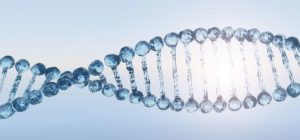Muscle loss is a condition that can affect everyone as it comes naturally with aging. There are
different ways to deal with the muscle loss but could hormone therapy be the answer?
RELATED: How To Prevent Losing Muscle Mass With Hormones And Protein
In this article:
1. WHAT IS SARCOPENIA?
Muscle loss, also known as ‘Sarcopenia’ is a very common condition for those over the age of 50. It is known that the human body starts to lose 3-5% of its muscle mass every ten years after the age of 30.
Muscle loss affects the quality of living, limits physical activities and some extreme cases result in death.
Muscle loss is mostly caused by old age but there can be other factors such as; unhealthy diet, stress, lack of physical activity, genetics and hormones. There have been studies about treating muscle loss with hormone therapy. In this article, we will go over different hormone therapy options and how they work.
2. HORMONE THERAPY FOR SARCOPENIA (AKA MUSCLE LOSS)
Listed hormones are some hormonal therapies that are being tested for the treatment of muscle loss.

1. Testosterone;
Testosterone is known to increase the number of satellite cells that are needed for muscle functions while increasing muscle power and muscle protein synthesis. A big number of old men suffer from Hypogonadism.
Hypogonadism is described as the total level of testosterone being below 2 SD compared to young adult men. Therefore about 20% of men who are over the age of 60, and 50% of those over the age of 80 are considered (classified) as Hypogonadism.
After the age of 30, the testosterone level in the body decreases by 1% every year. As the testosterone level decreases, it causes a decrease in muscle mass and bone density. Testosterone supplementation study results vary.
Although there was an increase in muscle mass in most studies, there was no increase in muscle strength. Besides, the direct effect of testosterone treatment on disability and physical performance is lacking even though there’s it has a beneficial effect on body mass and fat mass.
(Replacement of testosterone may also lead to undesired results, such as prostate enlargement, fluid retention, gynecomastia, polycythemia, and sleep apnea. A new therapeutic perspective represented by Selective Androgen Receptor Modulators has the same anabolic effect on muscle tissue as testosterone, of treatment obtained by improving the tissue selectivity of this drug, but without the undesirable side effects)
2. Estrogens and Tibolone
Estrogens and tibolone can have a direct effect on skeletal muscles by binding them to the estrogen receptors.
Tibolone can also bind androgenic receptors in the skeletal muscle while effectively restoring spontaneous growth hormone release. Tibolone is considered to have a beneficial effect on muscle strength because it increases the plasma level of nitric oxide (NO), and NO promotes satellite cell activation.
Even though lacking estrogen can affect sarcopenia, estrogen supplementation therapy hasn’t shown any distinct effects on muscle composition and function. With the possibility of increasing breast cancer and cardiovascular problems, it is not a preferred treatment.
3. Growth Hormones
With aging, there’s a decrease in growth hormones which affects skeletal muscles negatively. Besides stimulating muscle protein synthesis, IGF-1 (growth hormones) also suppresses proteolysis and promotes the delivery of amino acids and glucose to myocyte.
Growth hormones increase the quality of skeletal muscle function and help the recovery process after an injury. There have been multiple studies about the effects of growth hormones on muscle mass, strength, and physical performance. Although there was an increase in muscle mass in healthy elderly people with no growth hormone deficiency, there was no apparent change in muscle strength.
Growth hormones usage in old age sarcopenia isn’t recommended because of the likelihood of undesired results such as; fluid retention, gynecomastia, orthostatic, hypotension and carpal tunnel syndrome.
4. Vitamin D
Vitamin D plays an important role in muscle and bone metabolism. Low levels of vitamin D are associated with atrophy and sarcopenia, especially in type 2 muscle fibrils.
Vitamin D supplementation has been found to improve muscle strength, decrease falls, and prevent fractures. These effects are especially significant in individuals with low vitamin D levels.
Although it is plausible to associate low levels of vitamin D with a reduction in muscle strength and physical function, the evidence for supplementation has been inconsistent. Safety issues surrounding vitamin D supplementation in older people include increased risk of nephrolithiasis and hypercalcemia.
Other hormones therapies are being tested right now such as; melanocortin, ghrelin, leptin, etc. All these hormone therapies are reported to have both positive and negative results.
Given all the research and studies, hormone therapy for muscle loss remains a controversial topic. It is unclear that if it will be approved as a treatment for muscle loss. But until it is approved as a definite treatment, we recommend that people who suffer from sarcopenia should consult their doctors for more information and how to reverse the effects of muscle loss.



